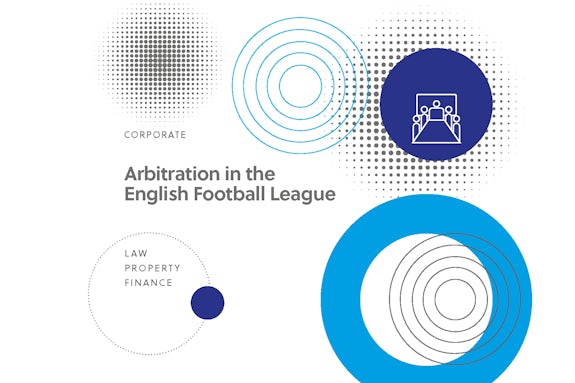“Football players are paid too much”. It’s a common phrase, but one usually used in reference to those players lucky enough to play their trade in the top league. The concept of a salary cap in relation to player remuneration may sound like a method for combatting this, but to date the only salary caps seen in British football have affected those in the lower leagues.
The caps we refer to here are those introduced by the English Football League in 2020, in relation to Leagues One and Two – the third and fourth divisions of English football. The restrictions in question capped overall remuneration, the aggregate of all salaries of players at each respective club, at £2.5 million per annum in League One and £1.5 million in League Two.
So why are we seeing salary caps in the lower tiers of the football pyramid?
It will be no surprise that the pandemic has affected all clubs financially. Whilst the top leagues may be able to offset the losses associated with the pandemic with TV income and sponsorship deals, those further down the pyramid rely heavily on gate and match day income. We have already seen Bury FC default on due payments and enter administration (with liquidation threatened and proposed) and there are fears that further clubs will face a similar fate with decreased commercial revenues as a result of stadium closures. To this end, the Premier League and European Football League announced a £250 million rescue package in December 2020 to assist sustainability within the EFL and protect lower league clubs from insolvency.
The salary caps were introduced alongside that rescue package. This required an amendment to the EFL constitution, needing approval from a majority of member clubs. This majority was obtained, but a minority opposed this on the basis that the caps could preclude investment and deter young talent from joining EFL teams.
These caps were subject to a challenge from the Professional Footballers’ Association in recent arbitration proceedings. The basis for this was that the salary caps were implemented without proper consultation with the PFA and Professional Football Negotiating and Consultative Committee (PFNCC). Without such consultation, the PFA contended that the decision to impose the salary caps was unlawful and unenforceable.
The challenge was upheld at arbitration. The decision emphasised the need to consult with the proper representative bodies when making structural and constitutional changes of this nature. Whilst it remains to be seen whether the EFL will consider the reintroduction of salary caps in a different form, this can be seen as a victory for both the PFA and the PFNCC and an acknowledgment of their role in the EFL structure.
Notwithstanding the recent decision, it is likely that discussions will continue until a suitable resolution is agreed as regards salary caps and any other protective measures that may affect players and clubs. Whilst it is likely acknowledged by players and clubs alike that cost control measures are needed to sustain the clubs, this arbitration shows that this can only be done with proper consultation and planning.
This is not unique to football, though. Regulatory bodies should always consider those that they represent when imposing structural and constitutional changes that will affect their members. Failure to so consult may lead to disharmony among members and, as was the case here, may lead to a challenge to those changes.
If you would like further information on the topic discussed in this blog, please contact: Derek Hamill by email: dhamill@gilsongray.co.uk or by phone: 0141 530 2022 / 07973 924 333. You can also view Derek’s profile by clicking here , Craig Darling by email: cdarling@gilsongray.co.uk or by phone: 0141 530 2044 / 07841 920 467 . You can also view Craig’s profile by clicking here , or contact Ryan Macreadt/ rmacready@gilsongray.co.uk.
The information and opinions contained in this blog are for information only. They are not intended to constitute advice and should not be relied upon or considered as a replacement for advice. Before acting on any of the information contained in this blog, please seek specific advice from Gilson Gray.








